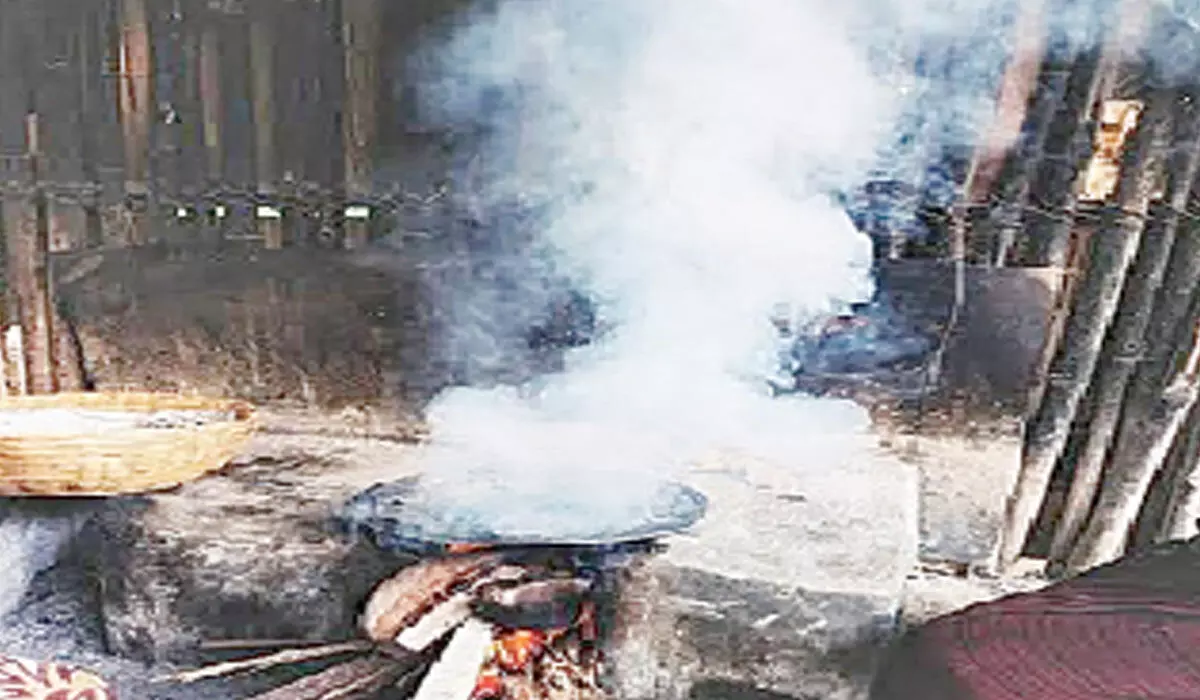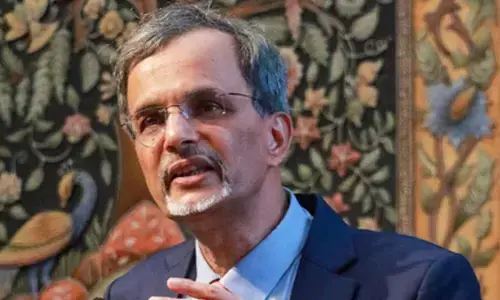What’s impeding shift to LPG?

The burning of biomass produces high concentrations of respirable particulate matter, carbon monoxide,
nitrogen oxides, and formaldehyde, among other harmful gases and toxic organic compounds. Using biomass for cooking exacerbates household air pollution and its associated health problems
After reducing the prices of Domestic LPG, public sector oil marketing companies (OMCs) have slashed the price of 19 kg Commercial LPG gas cylinders by about Rs 158 in many states. Earlier, on the eve of Raksha Bandhan, the price of domestic LPG was reduced by Rs 200 by the Central government as a gift to the women folk in the country.
New Delhi: After reducing the prices of Domestic LPG, public sector oil marketing companies (OMCs) have slashed the price of 19 kg Commercial LPG gas cylinders by about Rs 158 in many states. Earlier, on the eve of Raksha Bandhan, the price of domestic LPG was reduced by Rs 200 by the Central government as a gift to the women folk in the country.
Despite this, high refill costs, complex application process, absence of doorstep delivery and poor grievance redressal mechanisms are formidable barriers hindering the access, adoption and sustained use of liquefied petroleum gas (LPG) among low-income households in India, a new study says.
The study, part of a Cleaner Air and Better Health (CABH) project, aims at identifying the challenges impeding a shift away from unclean biomass fuels, guiding policy interventions and driving behavioral change. Supported by the United States Agency for International Development (USAID), the CABH is led by a consortium headed by independent think tank Council on Energy, Environment and Water. The study examined multiple dimensions, including women's attitudes towards biomass usage, the adoption and sustained use of LPG, perceptions of household air pollution (HAP), and awareness about the health risks linked to HAP.
Household air pollution can be attributed to the combustion of solid biomass fuels for cooking and heating. The burning of biomass produces high concentrations of respirable particulate matter, carbon monoxide, nitrogen oxides, and formaldehyde, among other harmful gases and toxic organic compounds. Using biomass for cooking exacerbates household air pollution and its associated health problems, the study said.
Since its inception in 2016, the Pradhan Mantri Ujjwala Yojana (PMUY) has been instrumental in expanding LPG access among low-income households. The scheme aims to provide LPG connections, a gas stove and a 14.2 kg cylinder to deprived households. Though nearly 9.59 crore connections have been issued as of March 2023, the study points out that LPG access does not guarantee sustained use. Affordability remains a major concern as volatile household incomes often collide with the high cost of LPG refills. A significant portion of households, around 41 per cent according to the National Family Health Survey, still rely on solid fuels, primarily due to economic constraints. Gender norms, systemic factors and a lack of awareness around LPG benefits compound these challenges.
Women above the age of 18, who are the primary fuel users, participated in 10 focus group discussions and nine in-depth interviews in the selected regions. The contrasting states of Jharkhand, where 67.8 percent of households use solid fuel, and Delhi, with only 0.8 per cent of such households, were chosen to provide a comprehensive view of the issue. One of the central findings is that the ease of access to fuel sources determines the choice of cooking fuel among low-income households.
Economic constraints coupled with perceptions around the price, safety, taste and health implications of LPG act as deterrents to its adoption. The study also found that most participants were unfamiliar with the concept of household air pollution, highlighting the need for extensive awareness campaigns.
The study noted a heavy reliance on community networks for information dissemination, indicating the need for targeted communication strategies. At the household and community levels, suggestions include designing and implementing behaviour change and awareness campaigns regarding the health impacts of biomass burning, the benefits of transitioning to LPG, and its safe usage. These campaigns should be conducted through self help groups and other social networks. Another step is to establish a local-level baseline data on households' fuel usage patterns. This data would help identify specific groups that should be targeted for interventions aimed at promoting the switch to clean cooking fuels, the study says.
Additionally, it is important to ensure the doorstep delivery of LPG cylinders under the Ujjwala Yojana in all regions. Exploring models such as the Public Distribution System to enhance delivery could prove beneficial, the study says. Support with documentation should be provided to highly vulnerable households, particularly those in non-notified 'bastis', to assist them in applying for LPG cylinders, it suggested.
To facilitate the application process for LPG connections and PMUY, designated personnel can be stationed at common service centres. Establishing a robust and accessible grievance redressal mechanism in each panchayat or ward would address issues such as gas-cutting and delays in application processing effectively. The study suggests that policy interventions could include increasing awareness about the affordable 5-kg LPG cylinder, particularly among low-income households, and ensuring its consistent supply.
(Agencies)















